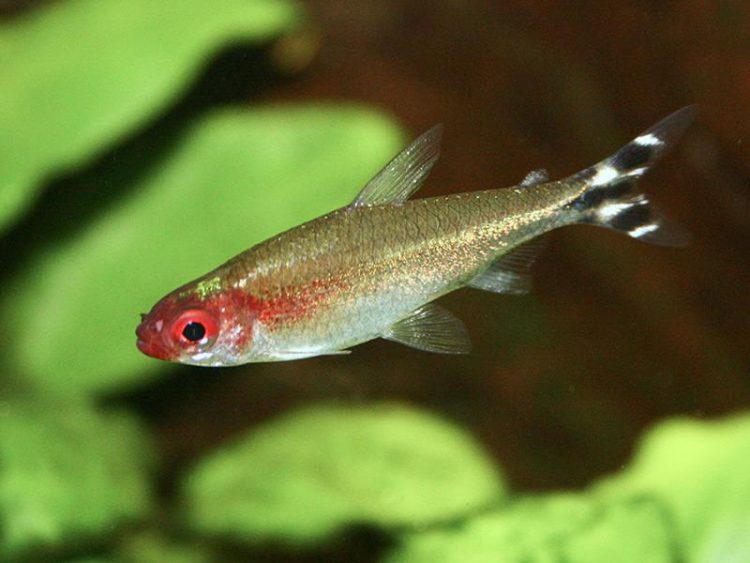I bought my Rummynose Tetras in the summer; they were said to have been bred here in Ontario. The price was a special of five for so much and so I had them catch me five and went home hoping that I would have better luck with these than I had with some that I had bought a good number of years ago. Those unfortunately did not last a week. After quarantining the fish for a couple of weeks they were put into a twenty-five gallon aquarium to grow along with a mixture of other tetras.

When this fall came around I decided to try my luck at spawning these fish. In my first attempt I used a five gallon aquarium filled with one third tap water and two thirds R.O.water, made acidic with peat moss. The fish were placed in a mesh basket with a spawning strip. I found that I had lost one fish over the summer and now had one female and three males. The fish laid a few eggs on the third day. Only a couple hatched but did not live long enough to become free swimming. A couple of weeks later, unfazed, I tried again. This time I used all R.O. water that was made acid with peat moss. In fact the PH was 6 and the conductivity of the water was 50 micro siemens on my meter. The temperature was 82 degrees F. I placed them in the mesh basket as before, but this time I only had a trio. I accidently squashed a male trying to catch them.
On the second day I found eggs on the tank bottom. The mesh basket and fish were removed and the tank shaded. After 36 hours some of the eggs hatched. Four days later they became free swimming. As a first food I gave them liquid fry food and after several days the new dwarf micro worms known as Walter Worms. By the end of the week I started feeding newly hatched baby brine shrimp The fry grow quickly and at a month old are a half an inch long and starting to show the black and white bars in the tail.
I now have a different problem. Which Rummy-nose do I have? I know that it is not Petitella georgiae the False-Rummy-Nose Tetra. Hemigrammus bleheri is often difficult to import and harder to keep if it does arrive alive. Hemigrammus rhodostomus is most likely the fish that I have. It ships better and is easier to keep and breed. The males of all three species are smaller and thinner but both sexes have that blood red head colour that often goes well into the body. Don’t overlook this fish. It sure is nice to see them in a school in a large community tank.
(Post Script – further investigation after this article was written indicates that the species in question is likely Hemigrammus bleheri, not rhodostomus.)
Leave a Reply